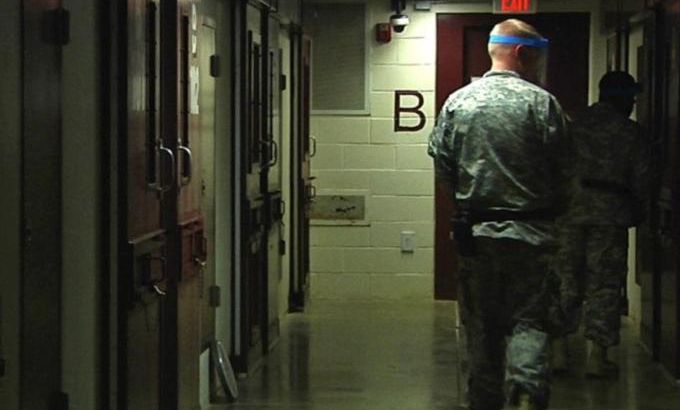
Will Obama close Guantanamo?
As hunger strike by 100 detainees reaches its third month, the US president returns to calls for prison’s closure.
The closure of the Guantanamo Bay detention centre was a top priority for Barack Obama during his first term as the US president, but since he began his second term, Obama has barely spoken of Guantanamo.
The prison in Cuba was also left largely out of the public discourse in the United States. But a now three-month-long hunger strike by more than 100 detainees has changed that.
The men using their peaceful and really the only form of protest that's left to them .... The men are in a state of desperation. The conditions are absolutely deplorable. Men have lost 30, 40 pounds. They're emaciated. They're dispirited ...
As the strike by inmates protesting their indefinite detention continues, the Pentagon has cleared the force feeding of 20 detainees, a move supported by Obama.
“I don’t want these individuals to die. Obviously, the Pentagon is trying to manage the situation as best as they can,” said Obama. “But I think all of us should reflect on why exactly are we doing this?”
But the American Medical Association (AMA), the largest association of US physicians, has sent a letter to Chuck Hagel, US secretary of defense, protesting against the force feedings, arguing they violate medical ethics.
“The American Medical Association (AMA) noted in 2005 and 2009, when concerns arose about the treatment of hunger strikers at Guantanamo Bay Base, that the forced feeding of detainees violates core ethical values of the medical profession. Every competent patient has the right to refuse medical intervention, including life-sustaining interventions,” read the AMA letter.
“We urge you to ensure that this matter receives prompt and thorough attention to address any situation in which a physician may be asked to violate the ethical standards of his or her profession.”
But one Pentagon spokesman told Carol Rosenberg, Miami Herald reporter, that it is “un-American” to let a detainee starve and that it “violates the very code of civilised peoples everywhere”.
So as the crisis in Guantanamo intensifies, is it finally time for justice to be done?
Inside Story Americas, with presenter Shihab Rattansi, discusses with guests: Vincent Iacopino, senior medical advisor for Physicians for Human Rights; John Knefel, independent journalist; and Vincent Warren, Center for Constitutional Rights executive director.
|
“I will never forget the first time they passed the feeding tube up my nose. I can’t describe how painful it is to be force-fed this way. As it was thrust in, it made me feel like throwing up. I wanted to vomit, but I couldn’t. There was agony in my chest, throat and stomach. I had never experienced such pain before. I would not wish this cruel punishment upon anyone.” Samir Naji al-Hasan Moqbel, a Guantanamo detainee |